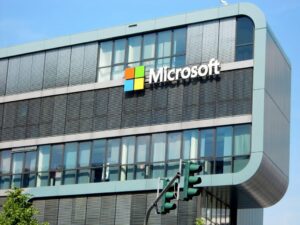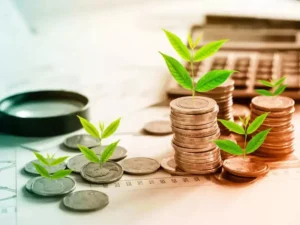
Microsoft to Train 1 Million Nigerians in AI to Boost Digital Workforce
Microsoft has unveiled a $1 million initiative to train one million Nigerians in artificial intelligence (AI) and digital skills over the next two years.
The Empower Africa Business Platform is Now Live !!!

The European Union has unveiled a €545 million (about US$636 million) investment package to boost clean energy and modernise electricity networks in nine African nations.
The announcement came on Sept. 27 during the Global Citizen Festival held in parallel with the U.N. General Assembly in New York.
European Commission President Ursula von der Leyen said the move is designed to support Africa’s energy transition, noting that “the choices Africa makes today are shaping the future of the entire world.”
She added that shifting the continent toward low-carbon power could drive job creation, greater stability, and progress toward global climate goals.
This funding is part of the EU’s broader Global Gateway initiative — a global infrastructure and development strategy that, through 2027, seeks to mobilise some €300 billion in investments worldwide.
The EU has signalled that approximately half of that will be directed toward African projects.
Among the allocations: Côte d’Ivoire will receive €359.4 million to support its “Dorsale Est” high-voltage transmission project, which aims to strengthen power links and enable more efficient electricity exports to neighbouring states such as Ghana, Togo, Burkina Faso, and Mali.
Cameroon is slated to obtain €59.1 million for rural electrification schemes, reaching more remote communities.
Somalia will be given €45.5 million to expand access to affordable renewable energy systems.
Madagascar’s share of €33.2 million will back installation of mini-grids in rural zones. Lesotho is to receive €25.9 million for wind and hydro power development, while Mozambique’s funding of €13 million will support its transition toward cleaner energy.
Smaller sums are earmarked for the Republic of Congo (€3.5 million) and Ghana (€2 million).
The EU also plans to support a regional power integration project in Central Africa, including technical assistance and preparatory studies for cross-border transmission lines under the Central African Power Pool framework.
The investment package comes amid a significant energy access gap: around 600 million Africans still live without electricity, even though the continent holds huge potential for renewable energy.
Globally, clean energy currently accounts for roughly 40 % of electricity production, but in Africa that figure is much lower — closer to 25 %.
Meeting Africa’s energy and climate goals will require substantial financing: the International Energy Agency estimates annual investment needs above US$200 billion by 2030.
Many African governments struggle to fund large clean energy infrastructure due to heavy debt burdens and limited access to low-cost finance.
At Africa Energy Week in South Africa, Ghana’s energy minister John Abdulai Jinapor cautioned against rigid mandates imposed from outside.
He argued: “a just transition cannot be a rigid blueprint drafted in Brussels, Washington, or Beijing and handed to us as a mandate.”
He further said Africa should not force a choice between fossil fuels and renewables, but instead find a balanced approach that supports growth, jobs, and resilience.
The EU hopes that this funding will not only accelerate energy access and cleaner power systems in Africa but also strengthen global climate efforts and foster long-term regional development.

Microsoft has unveiled a $1 million initiative to train one million Nigerians in artificial intelligence (AI) and digital skills over the next two years.

Incofin Investment Management, through the Nutritious Food Financing Facility (N3F) and in partnership with the Global Alliance for Improved Nutrition (GAIN), has invested in three food companies in East Africa: Soy Afric in Kenya, and Mkuza Chicks and Rainbow Haulage in Tanzania, to boost nutrition and food security in the region.

Remedial Health, a leading health tech startup based in Nigeria, has raised $12 million in a Series A funding round.